Khoury News
Microsoft magic: Khoury students create, collaborate at world’s largest software company
Eleven Khoury students made their home at Microsoft's Seattle-area headquarters this summer, working on everything from health care and travel products to cybersecurity.
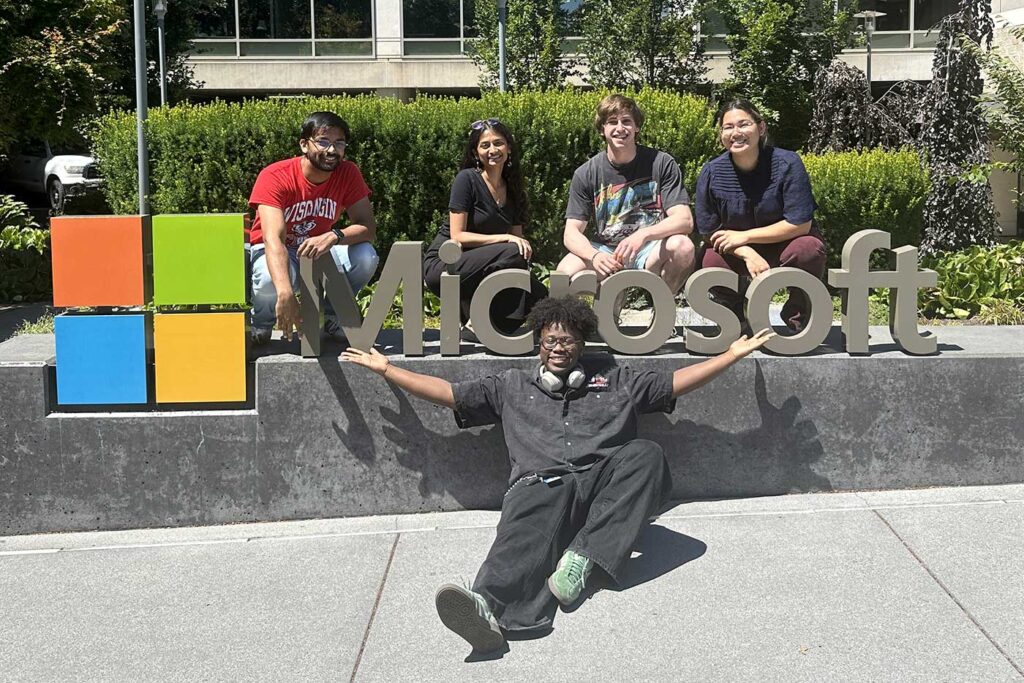
This summer, 11 Khoury College students traveled to the West Coast to intern with Microsoft, assuming roles ranging from software engineering to consulting.
The students spent 12 weeks living in Redmond, Washington, a suburb of Seattle and the home of Microsoft’s headquarters. Along with hundreds of other interns across the country, they worked on a variety of projects for numerous Microsoft services — drawn, they said, by the abundant opportunities offered by one of the world’s largest tech companies.
“Microsoft is in a really unique position; because it’s so big, it’s almost like several different companies within one company,” said Isabelle Papa, a fourth-year computer science and music technology major and a software engineering intern. “I was excited about the prospect of not just working in one particular area, but making connections and exploring other areas as well.”
Microsoft doesn’t offer co-ops, so students interested in working there must intern for the company.
“It was a way to explore something in a much shorter time span than a co-op,” said David Oduneye, a fourth-year computer science major and software engineering intern. “Co-ops are really cool, but I think sometimes you want to try out a shorter experience or go a little farther away.”
Students also said that Microsoft’s culture, which emphasizes personal growth, was a crucial factor when they considered the professional and self-development opportunities the internship offered.
“Microsoft is a big tech company with a big impact,” said Mike Mundia, a fourth-year computer science and theatre major and a software engineering intern. “That’s something I look for when I’m looking for my next internship or co-op opportunity. I read up on their culture, and one of their culture pillars is that growth mindset. My biggest goals when I’m doing these co-ops is to grow myself as a person, as an engineer.”
Software engineering interns improve Microsoft services
Throughout the internship, students worked on individual projects with support from their assigned team, which included a supervisor and mentor.

Papa worked on Microsoft’s Entra Verified ID service under the Identity and Network Access Organization. The product allows organizations to issue and manage decentralized identities for employees and customers, ensuring greater control over personal data and privacy.
Papa’s project laid the groundwork for a selective disclosure feature, which allows users to share only select information when verifying their personal details. For example, a person asked to verify their age for a job could share their date of birth from their ID without disclosing other information.
“It was super interesting because it’s emerging technology that is just starting to take off and get more customers, so it was pretty cool to be a part of,” Papa said.
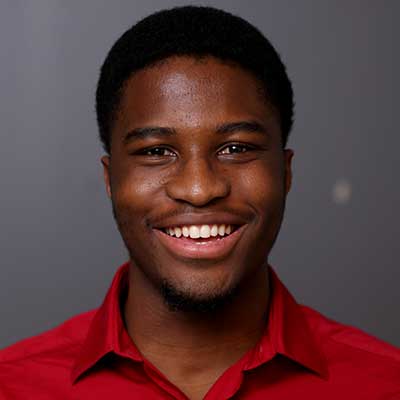
Oduneye’s project also focused on security; his team was created after external hackers breached Microsoft data in November 2023. That meant his team, which was a bit busier than normal teams, worked on technology that would help Microsoft more proactively secure its information and protect customers from future hacks.
“Specifically, I was working on a tool for performance testing,” Oduneye explained. “Especially in the early months of my internship, there was a lot of learning. My mentor would guide me to resources or people who could help me understand the work I was doing.”
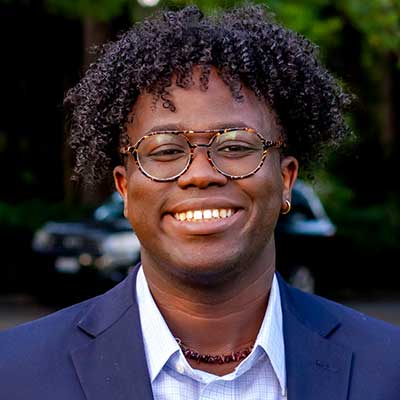
Mundia worked on the engineering systems behind Microsoft Windows and Azure, managing builds for operating systems and migrating their back ends to simpler systems.
“I’d never even coded on a Windows machine,” Mundia said. “All of that was new, but I learned how to actively ask questions and ramp up quickly so I can tackle anything going forward.”
Software engineering intern Adithi Ponakampalli, a third-year computer science and economics major, worked under Microsoft’s Fast Healthcare Interoperability Resources (FHIR) service. Her project involved building a FHIR subscription feature that would allow clients — such as health care providers, patients, and insurance companies — to keep track of and receive notifications when there are changes to specified health care data, such as lab results.
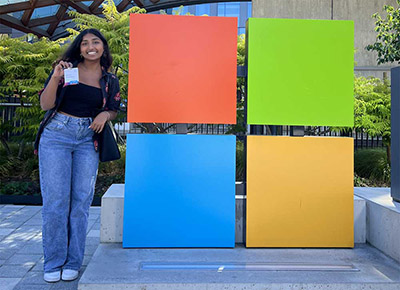
“This really automates the process of asking for updates and receiving all those notifications,” Ponakampalli said. “FHIR subscriptions is a feature that users are waiting for right now, which is also really cool, because working on this project has really made me feel like I have an impact at Microsoft.”
Designing applications through the New Technologists Program
Third-year computer science major Emma Vonbuelow, a software engineering and product development intern, was part of the New Technologists Program, which allows college students interested in tech careers to learn programming languages and develop products. This summer, the program’s 70 interns were split into groups of five, with each group developing a product for an assigned theme.
Vonbuelow’s team was tasked with developing a travel-themed technology, and after brainstorming problem statements, they developed a system that allows travelers to be more aware of local and Indigenous cultures.
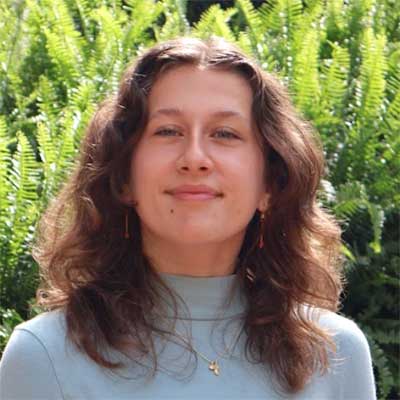
“We did a lot of research about how people are interested in local cultures when traveling, but recommendations can be more polarized because a lot of people indicate they get their recommendations via social media or online platforms,” Vonbuelow explained. “But when going to new places, they don’t consider culture so much when it comes to the activities they do.”
Vonbuelow’s team coded an app — currently proprietary to Microsoft and not publicly available — that invites each user to complete a questionnaire. Based on their answers, the app generates customized tags that relate to events happening in the user’s travel destination.
“Users were able to see local events from all over the world and have them relate to those personal tags,” Vonbuelow said.
Consulting and program manager interns improve customer experience
Cecilia Chepkoech, a fourth-year finance and data science combined major, took on a more customer-facing role during her consulting internship at Microsoft. She worked in the company’s solutions sector, which focuses on finding software solutions for companies using Microsoft products.

Chepkoech worked with a consumer goods company that wanted to have all their systems managed by Microsoft. The company also wanted their system to predict when a system break or failure was occurring, add efficiency to their sales process, and bring in more customers. Chepkoech’s job involved listening and fully understanding the customer’s needs and wants, then applying her technical skills from classes and previous co-ops to gain a deeper understanding.
“I know how to talk, I know how to listen, I know how to get into the consumer mindset. I also know how to code, so I can understand a bit of every single facet,” she said. “I’m able to communicate effectively to understand the customer.”
As she took more initiative and gained trust from her team, Chepkoech got to travel to the client’s location and take a more forward-facing role in consulting meetings.
“This internship really taught me to present myself, be myself in every single situation, and take initiative,” she said.
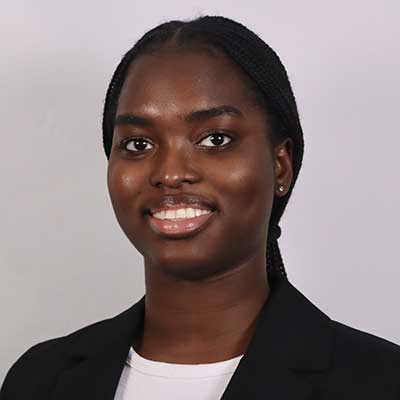
Yadah Ampofo, a graduate student in computer science, worked as a technical program manager for the Azure Core customer common platform and technology team. Azure is a cloud computing platform that offers cloud services like computing, analytics, and storage to organizations. Ampofo’s internship focused on improving customers’ zone-redundant resource deployment experience, which ensures that cloud services on Azure are reliable and resilient to disruptions.
Ampofo’s job included analyzing customer experience and encouraging customers to opt in to Azure’s resilience and zone redundant options.
“Even though Microsoft has a responsibility of making sure [Azure] is resilient, [system security] is a shared responsibility between the customer and Microsoft,” Ampofo explained. “There was an issue of low adoption of [zone-redundant] features for certain customers. I came up with UI/UX design recommendations on how we can make this deployment for customers easier, simpler, and in general increase adoption.”
Interns explore outdoor activities, network opportunities in Seattle
Microsoft allowed interns to choose between taking a stipend to find their own housing and living in corporate housing with other interns. Both options allowed students to connect with others working at Microsoft and other companies in the area.
“Making that group of friends and having that shared experience with them is not only a networking opportunity, but you get so close to people so fast,” said Ponakampalli, who opted for corporate housing.
Ampofo took the housing stipend and lived in Seattle’s University District with students who attended nearby schools. Through exploring the city, she met other Microsoft interns and people who worked at other technology companies like Amazon.
“Some of them lived in apartments down the street in the district, so we’d always have an opportunity to meet each other and network,” Ampofo said.
To get to work every day, some students used Microsoft’s bus system, which picks up employees around the city and takes them to Microsoft’s headquarters. While on the 502-acre campus, employees have access to a “personal Uber system” that takes them between Microsoft’s 125 buildings.
Outside of working hours, interns spent time exploring outdoor activities in Washington, found their favorite food spots, and attended events like comedy shows.

“I loved [Seattle] so much, I think it’s the most beautiful city in America. The whole city in the summer is very green; there are trees everywhere,” Mundia said, adding that teams within Microsoft often did activities together such as hiking or kayaking.
“I got to do a hot-air balloon in Seattle and visit the beach at Golden Gardens Park with some of my friends,” Ampofo said. “And I definitely ate a lot.”
Microsoft also organized company-wide events for interns, allowing them to connect and network.
“I always felt like I was taken care of. There’s a really big emphasis on the benefits and the enjoyment of your time while you’re working at Microsoft,” Oduneye said.
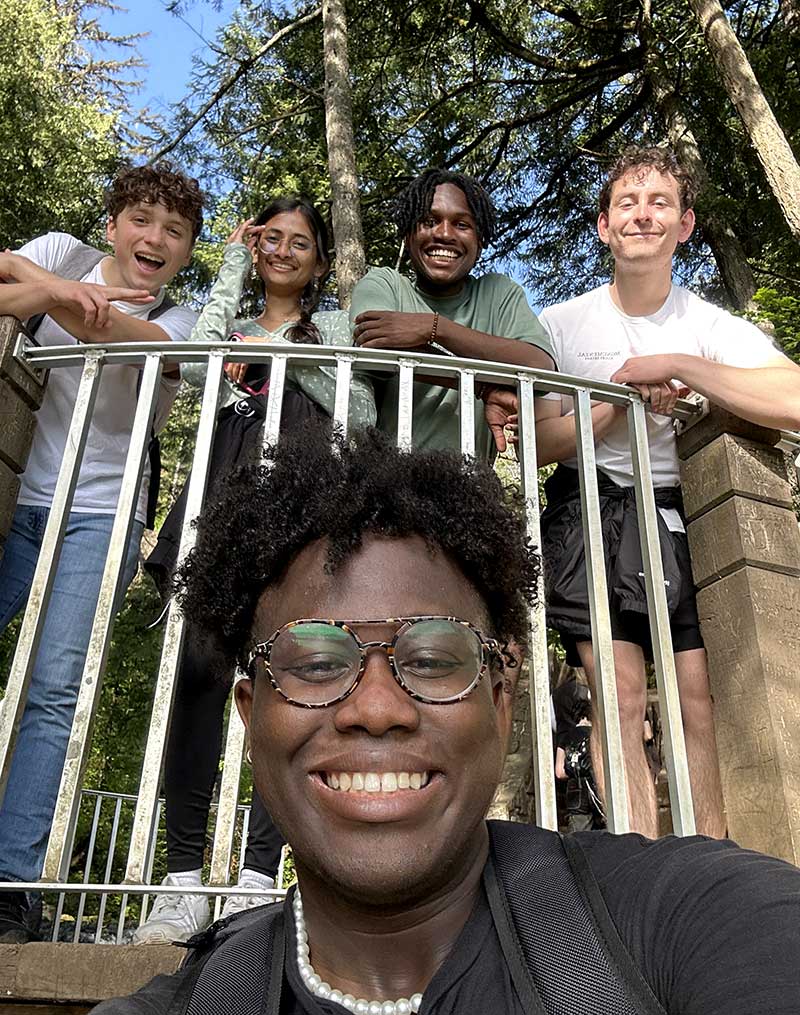
In all, students said the internship helped them grow both personally and professionally. Several interns, including Mundia, Papa, and Oduneye, got full-time return offers from Microsoft.
“This internship and my other internships have definitely solidified that software engineering or tech in general is a career path I want to go down,” Papa said. “Technology, especially in today’s world, is progressing super rapidly, and there’s a big opportunity to make a very positive impact but also a negative impact. You have to keep both of those things in mind, and I’ve always found that really interesting.”
Interns also said the experience showed them how to navigate workplace ambiguity and be comfortable asking questions.
“I gained a lot because I asked good questions. I was able to understand how to communicate, what I need to do, what I need to accomplish, and how I need to succeed in this role because of my previous experiences,” Oduneye said.
“You learn how to belong in tech spaces a lot more,” Vonbuelow added. “That’s such a big takeaway, that you belong in the space that you are in.”
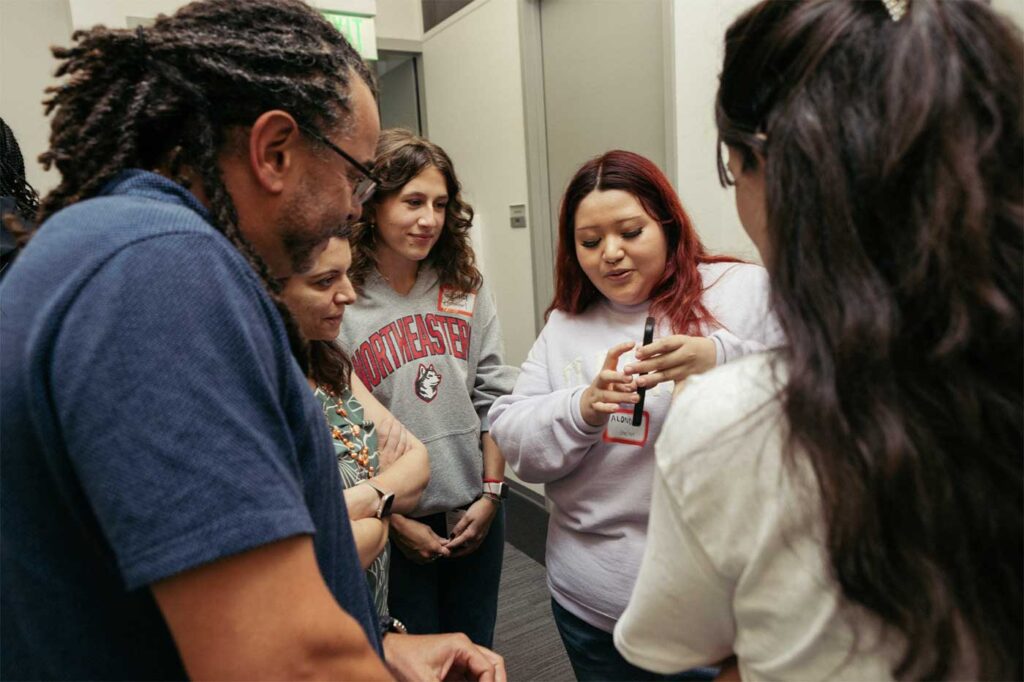
The Khoury Network: Be in the know
Subscribe now to our monthly newsletter for the latest stories and achievements of our students and faculty